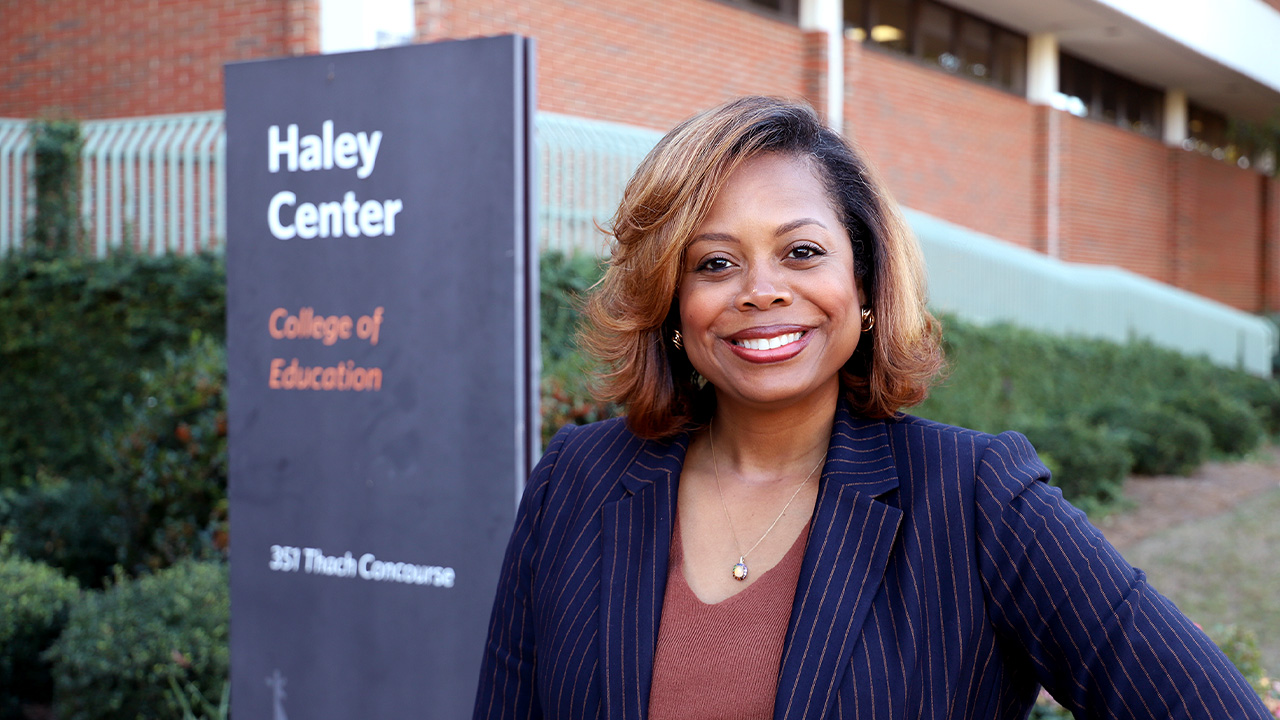content body

Crystal Smith, the Telecare Assessment and Consultation Clinic's outreach coordinator, works with families to coordinate services like speech and occupational therapy.
Early diagnosis and access to treatment are crucial to the development of children with autism spectrum disorder, and that’s why Auburn University’s College of Education has launched a new Telecare Assessment and Consultation Clinic (TACC) to serve low-income families.
The clinic is staffed by Outreach Coordinator Crystal Smith, who holds a master’s degree in rehabilitation counseling and has more than 20 years of experience counseling and providing transition services to youth and young adults with disabilities. She is assisted by Clinical Professor Vanessa Hinton, who teaches in the Department of Special Education, Rehabilitation and Counseling.
They are partnering with the north Alabama nonprofit Arc of Madison County to coordinate comprehensive evaluations for autism spectrum disorder using both in person and telehealth formats. Given how great the need is in the community, TACC staff hope to collaborate with and complement the work of the College of Liberal Arts’ Center for Autism Research, Treatment and Training.
For parents and caregivers in rural areas, the opportunity to meet via telehealth is particularly crucial, as it helps eliminate some of the need to take time off work and the expense of traveling to Auburn. Families with limited resources often face major delays in accessing diagnostic services and treatment, and Hinton, who researches special education and collaborative teaching in inclusive learning environments, is eager to make a difference.
“Children with autism spectrum disorder who have developmental delays need a variety of intensive services, and it’s very important that the services begin as early as possible,” she said. “We know that early diagnosis and treatment significantly improve the quality of life for children with autism spectrum disorder and their families.”
As part of the evaluation process, Smith works with each family to coordinate evaluation services like speech and occupational therapy evaluations that may come from a wide variety of providers, including school districts, employers and state-funded organizations. For families with limited resources, arranging for a multitude of services can be overwhelming or even impossible.
Outreach is fundamental to Auburn University's land-grant mission, and the College of Education is working to improve the futures of citizens in Alabama, across the nation and around the world.
Learn more about the College of Education's outreach programs“Services for young children with disabilities and their families need to integrate support across a broad range of public programs that include education, health care, workforce development and other welfare programs,” Hinton said. “One way to reduce barriers for families of children with autism spectrum disorder is through collaboration that utilizes service coordination and family centered best practices.”
TACC will be able to provide every family with a comprehensive report and assessment data they can share with providers in the future. This helps to prepare families for the future and set children up for success. Smith is excited to be making a difference for clients and their families.
“Early and accurate identification of autism can make a profound difference in a child’s development and long-term outcomes,” Smith said. “I’m thrilled to be part of building a program from the ground up with Dr. Hinton and look forward to the positive impact this clinic will have in supporting our community’s needs.”




